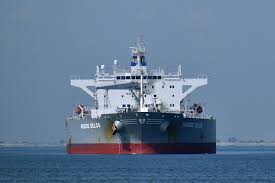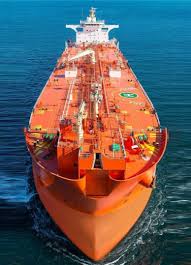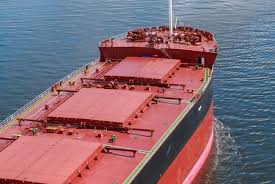![]()
If you’ve landed on this article page, you’re probably searching for a
good business idea—an idea that’s light on the pocket but heavy on
returns, promising both a fulfilling journey and potential profit.
|
How
To Start A Lucrative Oil Vessel Charter Business In Nigeria
The Oil Vessel Charter business in Nigeria
plays a significant role in the oil and gas industry. The
need to transport crude oil and other oil-related products to
different locations around the world has increased the demand
for oil vessel charter services. The oil and gas industry
accounts for a significant portion of Nigeria’s economy, and oil
vessel charter business is a vital component of this industry.
What Is An Oil Vessel?
An oil vessel is a ship designed to transport crude oil, refined
petroleum products, or liquefied natural gas (LNG). It is also
known as a tanker ship or oil tanker. About Oil Vessel Charter
Business: Oil vessel charter business involves leasing or
renting out ships or boats to transport oil and other petroleum
products. These vessels are specially designed and equipped to
safely transport and deliver petroleum products to different
locations. The vessels may include tankers, barges, and other
types of ships that can be used for oil transportation.
Oil exploration and production: Oil vessel charter business can
provide transportation and logistical support to oil and gas
exploration and production companies operating in Nigeria and
Africa.
Oil and gas drilling: The business can offer vessels for
offshore drilling operations for oil and gas companies.
Marine research: Oil vessel charter companies can provide
support services for marine research, including surveys, sample
collection, and data analysis.
Environmental monitoring: The business can offer vessels for
environmental monitoring and assessment, particularly in marine
environments.
Shipping and logistics: The business can provide transportation
services for goods and materials, including shipping, freight
forwarding, and logistics management.
Marine tourism: Oil vessel charter companies can offer charter
services for marine tourism, including whale watching, fishing,
diving, and sightseeing.
Salvage and towing: Oil vessel charter companies can provide
services for salvage operations, including vessel towing and
recovery.
Military and security: The business can provide vessels for
military and security operations, including naval support and
maritime security.
Film and media: Oil vessel charter companies can offer vessels
for film and media productions, including location scouting and
transportation for film crews and equipment.
Offshore renewable energy: The business can provide vessels for
offshore renewable energy projects, such as wind, wave, and
tidal energy.
Offshore mining: The business can offer vessels for offshore
mining operations, including the extraction of minerals and
resources from the seabed.
Marine transportation: The business can provide transportation
services for passengers and goods, including ferry services,
water taxis, and transport for oil and gas workers.
Aquaculture: Oil vessel charter companies can offer support
services for aquaculture operations, including fish farms and
shellfish farms.
Water sports: The business can provide vessels for water sports,
including jet skiing, water skiing, and wakeboarding
There are various types of oil vessel charter businesses in
Nigeria and Africa, each catering to a different need. Some of
these types are:
Platform Supply Vessels (PSVs): These vessels are used to
transport supplies, equipment, and personnel to offshore
platforms.
Anchor Handling Tug Supply (AHTS) vessels: These vessels are
used to handle and anchor drilling rigs and other offshore
equipment.
Fast Support Intervention Vessels (FSIVs): These vessels are
used for rapid deployment of personnel and equipment during
emergencies.
Diving Support Vessels (DSVs): These vessels are equipped with
diving systems and are used to support diving operations.
Floating Production Storage and Offloading (FPSO) vessels: These
vessels are used for offshore oil production and storage.
Shuttle Tankers: These vessels are used to transport crude oil
from offshore platforms to refineries.
Pipe-laying vessels: These vessels are used to lay underwater
pipelines for oil and gas transportation.
Each of these types of oil vessel charter businesses has its own
unique characteristics and requirements. It is important to
choose the right type of vessel for the specific needs of the
oil and gas industry.
There are several types of vessels that can be used for Oil
Vessel Charter Business in Nigeria and Africa. Here are some of
the most common types:
Tankers: Tankers are large vessels that are designed to
transport liquid cargo, such as crude oil, gasoline, and
chemicals. They come in different sizes and capacities, ranging
from small coastal tankers to giant supertankers.
Bulk carriers: Bulk carriers are used to transport dry cargo,
such as grains, coal, and minerals. They are designed to carry
large amounts of cargo and have a large open cargo hold.
Offshore support vessels: Offshore support vessels are used to
support oil and gas exploration and production activities. They
include supply vessels, standby vessels, anchor handling
vessels, and construction vessels.
Floating production storage and offloading (FPSO) vessels: FPSO
vessels are used to produce and store oil and gas at sea. They
are equipped with processing facilities and storage tanks, and
can be connected to subsea wells.
Jack-up rigs: Jack-up rigs are offshore drilling platforms that
are used to drill exploratory and production wells. They are
supported by legs that can be raised or lowered to the seafloor.
The oil vessel charter business in Nigeria
is a lucrative and challenging industry with high demand
due to the oil and gas exploration activities in the Country. It
requires significant investments in capital, expertise, and
technology to operate efficiently and effectively. The types of
vessels used in this industry vary depending on the nature and
location of the operation, and the equipment and amenities
required are also specific to the industry’s needs.
Get our training guide on how to start a lucrative Oil Vessel
Charter business. This guide helps you market and place the
product correctly by identifying the target customer group of
the product ,The report provides forecasts of key parameters
which helps to anticipate the industry performance and make
sound business decision
|







